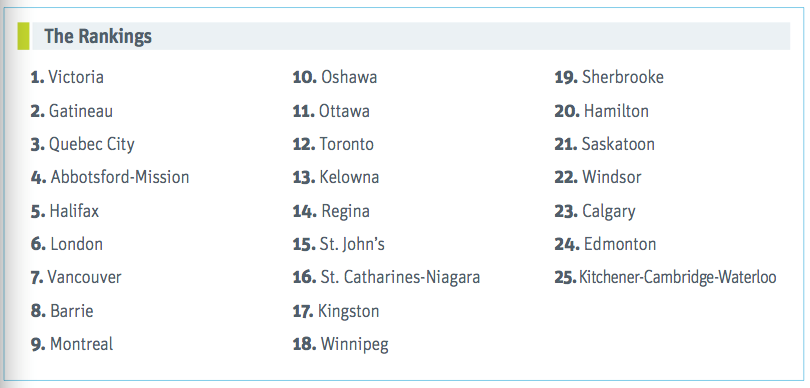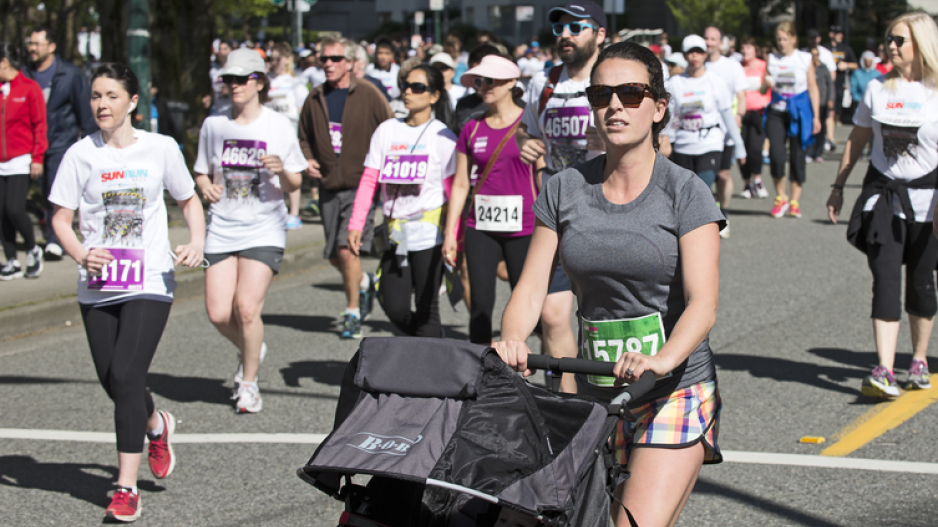Vancouver ranks seventh in Canada in a list of the best places for women to live, according to a July 15 Canadian Centre for Policy Alternatives.
The list is based on a study that compared leadership, health, personal security, education and economic security in 25 Canadian cities.
Women in Vancouver score highly in terms of health, educational attainment, leadership roles and having a relatively small wage gap in full-time jobs.
Vancouver women have the country’s longest life expectancy, with women living 86 years on average compared with 81 for men. Sixty four per cent of women rate their health as very good or excellent (61% for men).
Women in this city are more likely than men to hold university degrees (27% compared with 26% for men). They are also more likely than men to have completed high school or college.
Five out of every 11 elected positions in the City of Vancouver are held by women.
The wage gap between men and women in Vancouver is close to the national average of 70% and is well behind Gatineau, Quebec, where women earn 87 cents on the male dollar.
Vancouver’s wage gap narrows significantly for full-time workers. When only examining those in full-time positions, women earn 83% of what men earn.
Victoria tops the list overall, according to the study, thanks to factors such as a relatively small wage gap and a high percentage of female politicians.

(CCPA)
“Victoria did really well in economic security or how women are doing in the job market and in terms of poverty and income,” said Iglika Ivanova, senior economist at the Canadian Centre for Policy Alternatives’ Vancouver office.
Women in Victoria come the closest to having the same level of employment as men, trailing them by just three percentage points. The study says this is largely the result of a lower-than-average employment rate among men. The same is true for wages, where a smaller-than-average gap between men’s and women’s wages is due in large part to men’s wages coming in below the national average.
Women earn 73% of what men do in Victoria. The study attributes this to the fact that both cities have large public-sector employers, with strong unions and equal-opportunity rules that limit discriminatory gaps in pay and promotion.
Victoria is the only major city where women outnumber men among city councillors. St. John’s has no female city councillors at all. Other Greater Victoria municipalities also have significant numbers of female politicians; women make up 45% of elected positions on average, the closest any region comes to parity.
Victoria Mayor Lisa Helps said she’s thrilled to see strong female leaders shaping the community.
“There are so many women in this city who are leaders in business, in the non-profit sector, in tech, in all industries and all sectors,” Helps said.
“But with [women making up] 45% of the elected office in the region, that’s got to have some impact on this 21st-century, collaborative, bottom-up, community-driven approach to leadership.”
In Esquimalt, where the town council has six women and one man, Mayor Barb Desjardins is not surprised by the numbers in the study.
Desjardins said the fact that there’s a wage gap at all means more needs to be done. “We have to resolve that and the more women being in positions where policy can be set the better, because we’ll get there.”
“Victoria is doing better in many areas than other cities, but that doesn’t mean that things are perfect,” Ivanova said.
While the results are positive for Victoria and Vancouver, the study finds all Canadian cities have a long way to go in closing the gap between the sexes.
A major concern raised in the report is that the rate of violence against women across Canada hasn’t dropped significantly in the last 20 years. “And we’re not paying as much attention as we need to that issue,” Ivanova said.
- With files from Katie Derosa, Times Colonist




